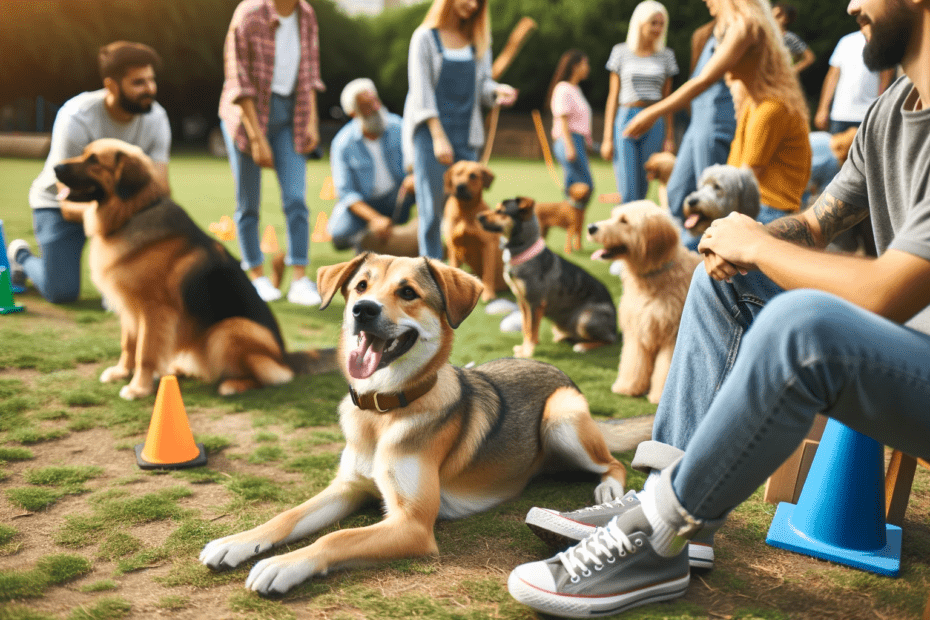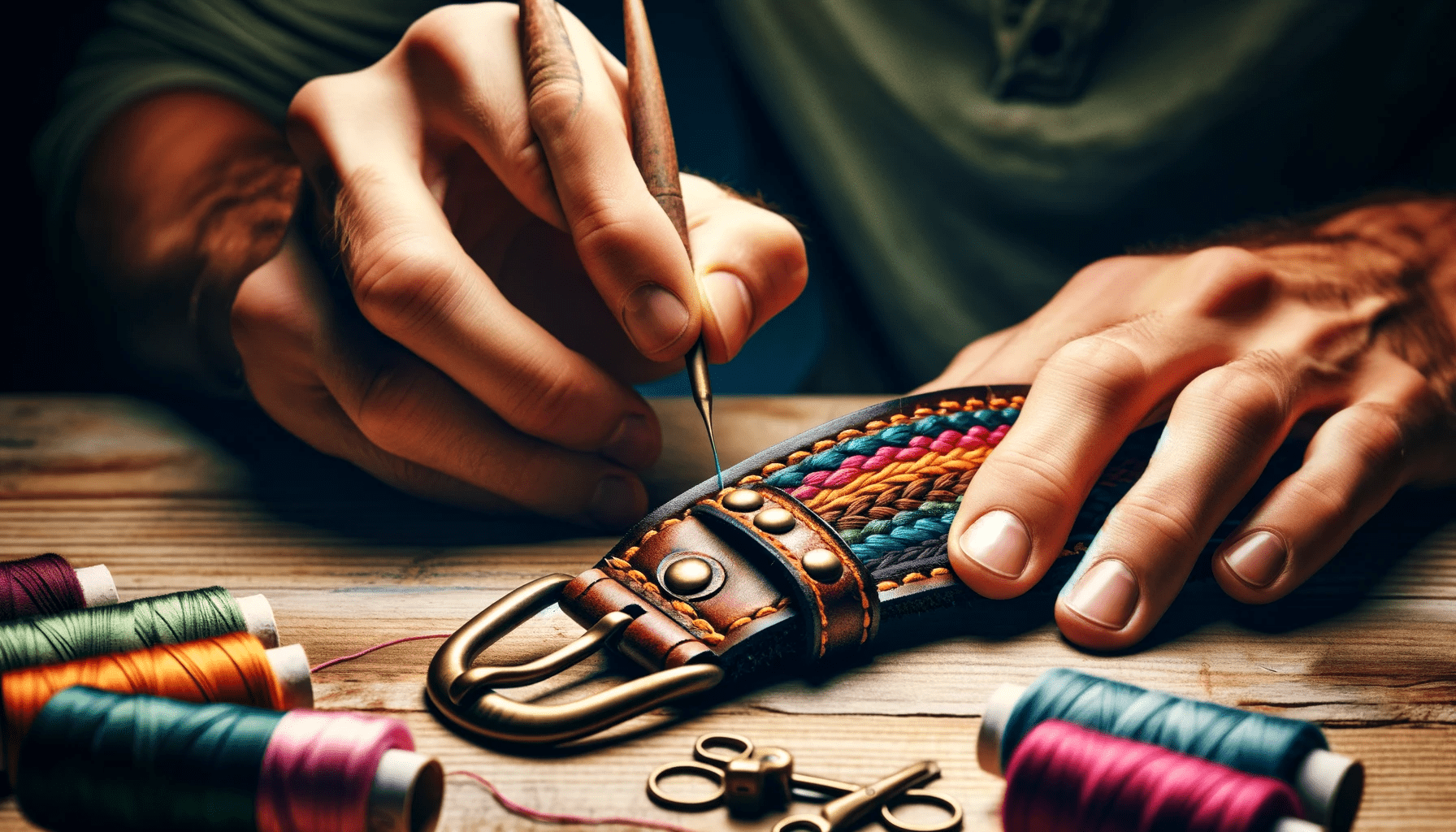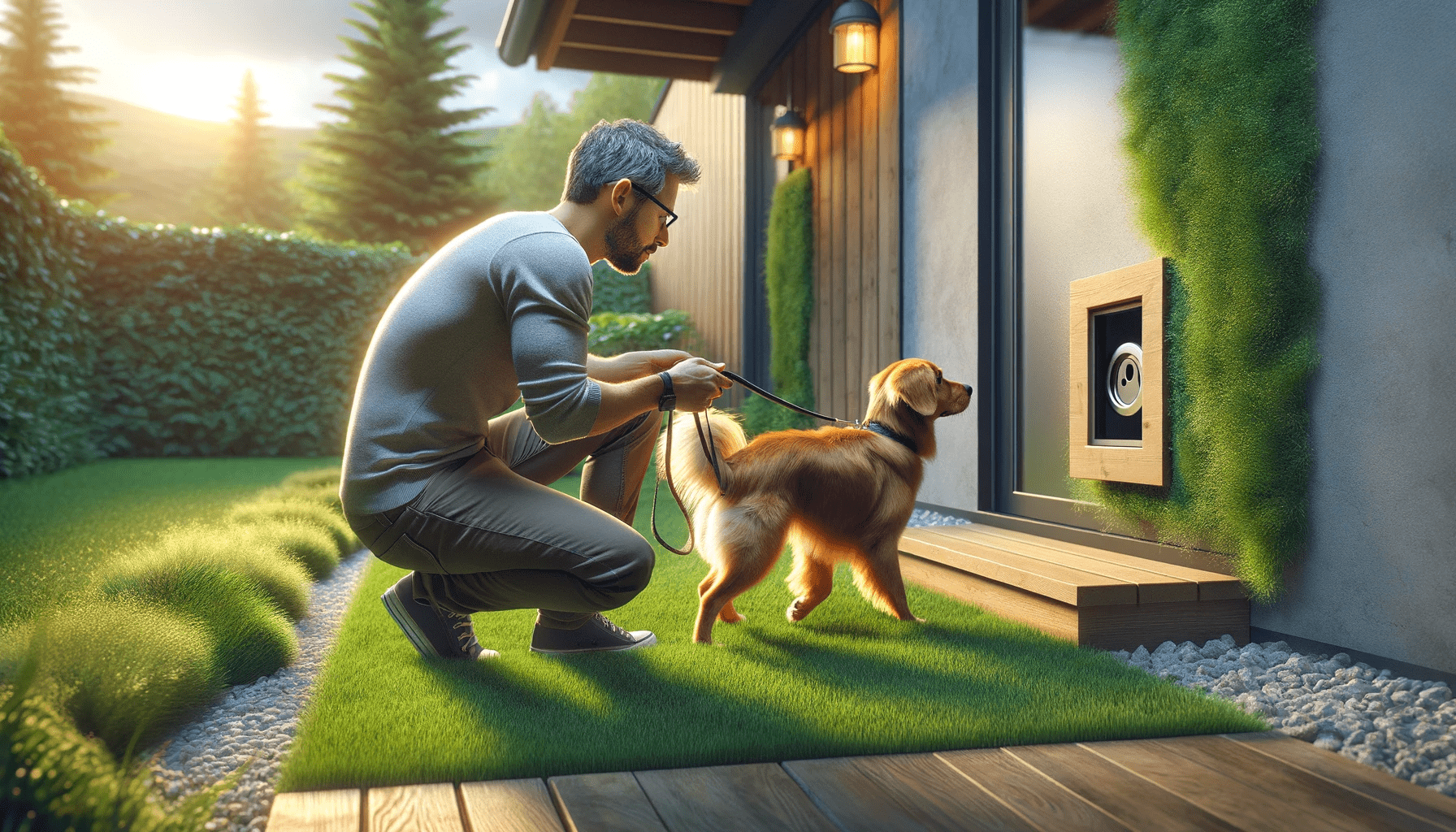Are you wondering how to best socialize your rescue dog? Look no further! In this article, we will explore the most effective socialization training techniques for rescue dogs.
We'll cover key factors to consider, effective techniques, and the challenges you may face. By following our experienced and practical advice, you can help your furry friend build confidence and thrive in their new environment.
So, let's dive in and discover the best socialization training for your beloved rescue dog!
Key Takeaways
- Socialization training is crucial for rescue dogs to successfully integrate into society.
- The use of positive reinforcement, clicker training, and desensitization are effective methods for training.
- Consistency, patience, and understanding are important when socializing rescue dogs.
- Gradual exposure to new experiences and environments, along with building trust, helps build confidence in rescue dogs.
Importance of Socialization Training
To understand the importance of socialization training for rescue dogs, you need to recognize that it's crucial for their successful integration into society. Early socialization provides numerous benefits for these dogs, especially those who are fearful or have had traumatic experiences. By exposing them to different environments, people, and animals at a young age, rescue dogs can develop confidence and learn to navigate the world with ease.
One of the key benefits of early socialization is the reduction of fear and anxiety in rescue dogs. By gradually introducing them to new experiences and positive interactions, they can learn to trust and feel more secure in their surroundings. This is particularly important for fearful dogs, as socialization can help them overcome their fears and build resilience.
There are various techniques that can be used to socialize fearful rescue dogs. One effective method is gradual exposure, where the dog is slowly introduced to new stimuli in a controlled and positive manner. This allows them to gradually acclimate and gain confidence. Another technique is positive reinforcement, where the dog is rewarded for calm and relaxed behavior during socialization exercises. This helps them associate new experiences with positive outcomes.
Key Factors to Consider in Training
Consider several key factors when training rescue dogs for socialization. The first factor to consider is the training methods you'll use. There are various methods available, including positive reinforcement, clicker training, and desensitization. Positive reinforcement involves rewarding your dog for good behavior, while clicker training uses a clicker to mark desired behaviors. Desensitization involves gradually exposing your dog to the things that make them anxious or fearful, helping them become more comfortable over time.
Another important factor to consider is the time commitment required for training. Training a rescue dog for socialization can be a lengthy process that requires patience and consistency. It's important to set aside dedicated time each day to work with your dog, reinforcing positive behaviors and helping them overcome any fears or anxieties they may have. Consistency is key in training, so be prepared to commit to regular training sessions.
In addition to training methods and time commitment, it's important to consider your dog's individual needs and temperament. Some dogs may require more time and patience than others, so it's important to tailor your training approach to their specific needs. It's also important to be aware of any previous trauma or abuse your rescue dog may have experienced, as this can affect their behavior and require special attention during training.
Effective Techniques for Socialization
When training rescue dogs for socialization, it's crucial to employ effective techniques that focus on gradual exposure to new experiences and positive reinforcement.
Here are some dog socialization tips to help you introduce your rescue dog to new environments.
Start by introducing your dog to unfamiliar places in a calm and controlled manner. Choose quiet locations with minimal distractions to help your dog feel more comfortable. Keep the initial sessions short and gradually increase the duration as your dog becomes more at ease.
During these introductions, use positive reinforcement to reward your dog for calm behavior. Treats, praise, and gentle petting can all help create positive associations with new environments. This will encourage your dog to feel more confident and relaxed in unfamiliar settings.
When introducing your dog to new environments, be mindful of their body language and stress signals. Watch for signs of anxiety, such as panting, trembling, or trying to hide. If your dog becomes overwhelmed, take a step back and give them space to decompress.
Remember to be patient and consistent with your training. Socialization is a gradual process, and it may take time for your rescue dog to feel comfortable in new environments. By using these techniques and providing a supportive environment, you can help your dog build confidence and thrive in their new surroundings.
Challenges in Socializing Rescue Dogs
Socializing rescue dogs can present various challenges, such as overcoming fear and building trust. When working with a rescue dog, it's important to understand that they may have experienced traumatic situations in the past, which can lead to behavioral issues. Fear aggression is one common behavioral issue that rescue dogs may exhibit.
To effectively socialize a rescue dog and address these challenges, consider the following:
- Patience and understanding: Give the dog time to adjust to their new environment and build trust. Understand that it may take time for them to feel comfortable and safe around people and other animals.
- Positive reinforcement training: Use rewards and praise to encourage positive behavior. This can help the dog associate social interactions with positive experiences, helping to reduce fear and aggression.
- Gradual exposure: Introduce the dog to new people, animals, and environments gradually, starting with controlled and calm situations. This can prevent overwhelming the dog and triggering fear aggression.
Building Confidence Through Socialization
To build confidence through socialization, focus on gradually exposing your rescue dog to new experiences, people, and animals. Building trust is crucial in this process, as it helps your dog feel secure and comfortable in new situations. Positive reinforcement is also essential, as it rewards your dog for displaying confident behaviors.
Start by introducing your rescue dog to new experiences in a controlled and positive manner. Begin with low-stress environments and gradually increase the level of difficulty. For example, start by taking your dog on short walks in a quiet neighborhood and gradually expose them to busier streets or crowded parks. This gradual exposure allows your dog to build confidence and adapt to new stimuli at their own pace.
When introducing your dog to new people and animals, make sure to do so in a positive and controlled environment. Use treats or toys as rewards for calm and confident behavior. Encourage interactions with friendly and well-socialized dogs, but always monitor the interactions to ensure safety.
Consistency is key when building confidence through socialization. Make socialization a regular part of your dog's routine, exposing them to different situations, people, and animals. With time, patience, and positive reinforcement, you'll help your rescue dog develop the confidence they need to navigate the world with ease.
Frequently Asked Questions
Can Rescue Dogs Be Effectively Socialized Even if They Have Had a Traumatic Past?
Yes, rescue dogs can be effectively socialized despite past trauma. With proper rescue dog rehabilitation techniques, they can overcome fear and mistrust. It requires patience, consistency, positive reinforcement, and gradual exposure to new experiences and people.
Are There Any Age Limitations for Socializing Rescue Dogs?
There are no specific age limitations for socializing rescue dogs, but it's important to consider any trauma effects they may have experienced. With patience and proper training, you can help them overcome their past and become well-socialized companions.
How Long Does It Typically Take for a Rescue Dog to Become Well-Socialized?
It typically takes time for a rescue dog to become well-socialized. The timeline can vary depending on the individual dog's background and experiences. Challenges may arise when socializing traumatized rescue dogs, but with patience and proper training, progress can be made.
Can Socialization Training Help With Separation Anxiety in Rescue Dogs?
Socialization training can benefit rescue dogs by helping them overcome separation anxiety. Techniques such as gradual desensitization and counterconditioning can be used to teach them that being alone is safe and reduce their anxiety.
Are There Any Specific Breeds or Types of Rescue Dogs That Require Specialized Socialization Techniques?
For different breeds of rescue dogs, specialized socialization techniques are important. Early socialization plays a crucial role in their development. Understanding the specific needs of each breed will help you provide effective socialization training.
Conclusion
In conclusion, socialization training is crucial for rescue dogs to help them overcome their fears and build confidence in new environments.
By considering key factors such as positive reinforcement and gradual exposure, and using effective techniques like controlled introductions and desensitization, owners can successfully socialize their rescue dogs.
Remember, patience and consistency are key in this process as it may present challenges along the way.
With proper training and support, rescue dogs can become well-adjusted and happy members of their new families.






